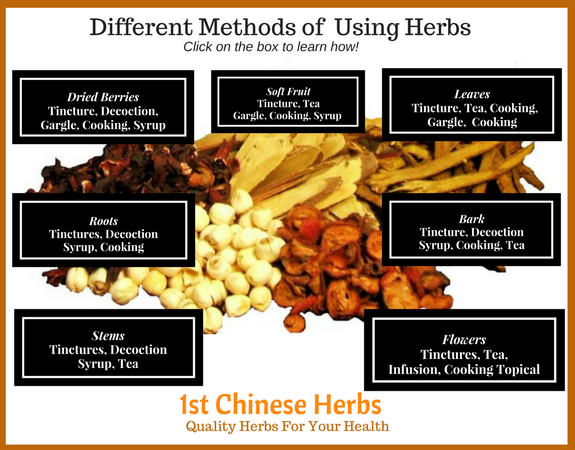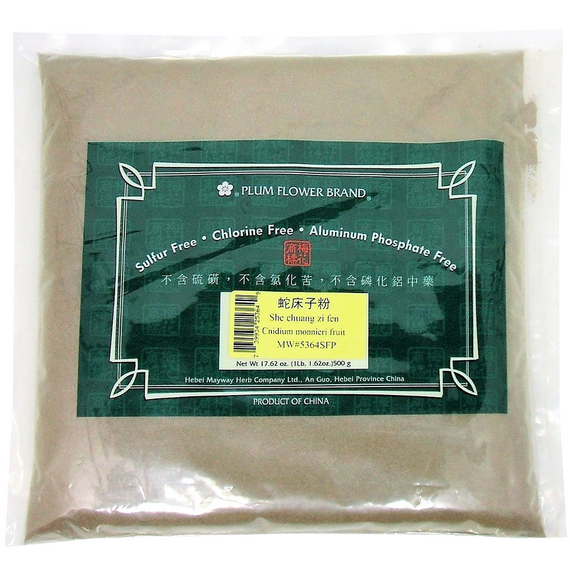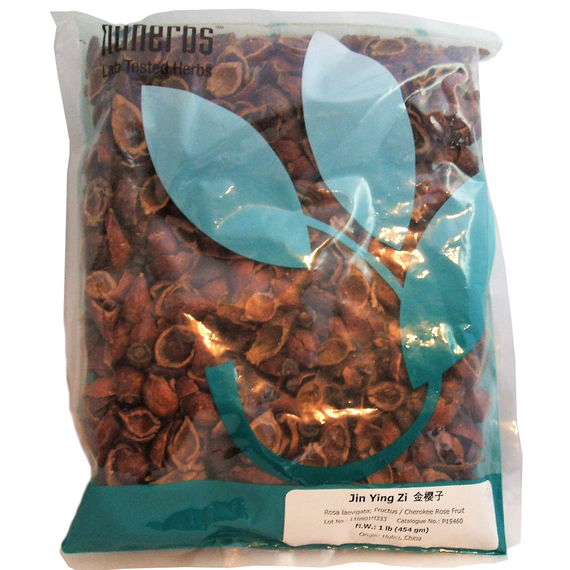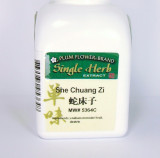Comprehensive Guide to Cnidium: Benefits, Uses, and Pharmacology
Cnidium (Cnidium monnieri), also known as She Chuang Zi, is a prominent herb in Traditional Chinese Medicine (TCM) with a long history of use. It has been widely recognized for its various pharmacological properties and therapeutic benefits. In this comprehensive guide, we delve into the intricate details of cnidium, its bioactive compounds, health benefits, and its role in modern medicine.
Introduction to Cnidium
Cnidium is a flowering plant native to China, Korea, Mongolia, Vietnam, and parts of Russia. It has been cultivated for centuries for its medicinal properties. The seeds of the plant, known as She Chuang Zi in TCM, are particularly valued for their ability to treat a wide range of conditions, from skin disorders to sexual health issues. The seeds are rich in bioactive compounds that have been extensively studied for their therapeutic potential.
Bioactive Compounds in Cnidium
Cnidium seeds contain a variety of bioactive compounds, each contributing to its wide array of health benefits. The primary constituents include:
-
Coumarins: Known for their anti-inflammatory, anti-hypertensive, and analgesic properties, coumarins are one of the most potent components of cnidium. These compounds play a crucial role in reducing inflammation and pain, making cnidium an effective remedy for various inflammatory conditions.
-
Osthole: This coumarin derivative is the most studied compound in cnidium. Osthole exhibits a broad spectrum of biological activities, including antifungal, antibacterial, antiviral, and anti-inflammatory effects. It also supports cardiovascular health, promotes memory and cognitive function, and enhances sexual health by increasing nitric oxide production.
-
Chromones: Chromones in cnidium seeds have been found to possess antioxidant, antiviral, and anti-inflammatory properties. They contribute to the overall health benefits of cnidium by protecting cells from oxidative stress and supporting immune function.
-
Essential Oils: Cnidium seeds also contain essential oils that provide antimicrobial and antifungal properties. These oils are particularly effective in topical applications for treating skin infections and other dermatological conditions.
Traditional Chinese Medicine and Cnidium
In Traditional Chinese Medicine, cnidium seeds are used to invigorate the kidneys and liver, warm the yang, and dispel dampness. These actions are fundamental in treating conditions such as impotence, infertility, and lower back pain. Cnidium is also used to treat skin disorders, particularly those characterized by itching and dampness, such as eczema and fungal infections.
Cnidium in Sexual Health
Cnidium has been widely used in TCM to enhance sexual health. It is believed to improve libido, treat erectile dysfunction, and enhance fertility. Modern research supports these traditional uses, showing that cnidium, particularly its osthole content, can improve blood flow and increase the production of sex hormones, thereby improving sexual performance and reproductive health.
Cnidium in Dermatology
Cnidium is a common ingredient in topical formulations for treating various skin conditions. Its antifungal and antibacterial properties make it effective against infections such as athlete’s foot, ringworm, and other fungal skin disorders. Additionally, its anti-inflammatory properties help reduce itching and irritation, making it an ideal treatment for eczema and dermatitis.
Cnidium in Immune Support and Inflammation
The anti-inflammatory and immunomodulatory effects of cnidium make it a valuable herb for supporting immune health. By reducing inflammation and supporting immune function, cnidium can help the body combat infections and inflammatory conditions. This makes it particularly useful in treating respiratory conditions, such as asthma and chronic bronchitis, where inflammation plays a key role.
Pharmacological Actions of Cnidium
Anti-inflammatory and Analgesic Effects
Cnidium’s anti-inflammatory properties are primarily due to its high content of coumarins and osthole. These compounds inhibit the production of pro-inflammatory cytokines and reduce the activity of enzymes involved in the inflammatory process. This action not only helps in reducing pain and inflammation but also prevents the progression of inflammatory diseases.
Antimicrobial and Antifungal Properties
The antimicrobial properties of cnidium are largely attributed to its essential oils and osthole content. These compounds have been shown to inhibit the growth of various bacteria, fungi, and viruses. This makes cnidium an effective treatment for infections, particularly those affecting the skin and mucous membranes.
Cardiovascular Benefits
Osthole, one of the primary constituents of cnidium, has been found to have several beneficial effects on cardiovascular health. It helps dilate blood vessels, reduces blood pressure, and improves blood flow. These actions can help prevent and manage cardiovascular diseases such as hypertension and atherosclerosis.
Neuroprotective Effects
Recent studies suggest that cnidium may have neuroprotective effects, particularly in protecting against neurodegenerative diseases. Osthole has been shown to enhance memory and cognitive function, potentially by increasing the levels of neurotrophic factors and reducing oxidative stress in the brain.
Applications of Cnidium in Modern Medicine
Formulations and Dosage
Cnidium can be used in various forms, including tinctures, capsules, teas, and topical creams. The appropriate dosage depends on the condition being treated and the form of the herb used. In general, for internal use, a daily dose of 3-10 grams of cnidium seed is recommended, either as a decoction or in powdered form. For topical applications, cnidium extract can be incorporated into creams or ointments at a concentration of 5-10%.
Conclusion
Cnidium is a versatile and powerful herb with a wide range of therapeutic applications. Its rich content of bioactive compounds, particularly osthole, makes it a valuable tool in both traditional and modern medicine. From enhancing sexual health and supporting immune function to treating skin disorders and promoting cardiovascular health, cnidium offers numerous benefits that are backed by both historical use and modern research.
Product Description
Common Name: Cnidium Fruit
Botanical Name: Cnidium monnieri; Fructus
Channels/Meridians: Kidney
Pin Yin Name: She Chuang Zi
Other Ingredients: None, nothing has been added to this product.
Package Size: 1 pound
Form: Cut / Sliced, not uniform pieces.
Origin: China
Brand: Nuherbs Lab Test - Geo-Authentic Herbs
Cautions: Do not use if pregnant or nursing. May interact with medications. Do not use if you are allergic to this herb. May interfer with blood sugar, blood pressure, and blood clotting.
California Prop 65
Additional Information
- Botanical support for male reproductive system
- Dries Dampness
- Benefits Libido
Product Properties: Acrid, Bitter, Warm
The seeds of cnidium are whole, dry, and quite small. They are the shape of raspberry seeds, but a bit smaller. Traditional Chinese medicine books suggest cnidium in the chapter for topical applications. Cnidium seed is often made into topical applications for specific skin ailments and skin parasites.
References:
https://en.wikipedia.org/wiki/Cnidium_monnieri
https://www.worldscientific.com/doi/abs/10.1142/S0192415X15500500
https://www.mdpi.com/2223-7747/13/10/1305
https://clinphytoscience.springeropen.com/articles/10.1186/s40816-020-00227-3
https://pubmed.ncbi.nlm.nih.gov/26243582/
https://www.nature.com/articles/s41597-024-03523-6
Check out our How to Use Bulk Herbs page to see how to use herbs correctly.
About Nuherbs Lab Tested Quality
Each batch of herbs is dual-lab tested by our in-house lab and independent third party lab. Our in-house lab is equipped with instruments such as a high performance liquid chromatography, moisture determination meter, Fourier transform infrared spectrometer, atomic absorption spectrophotometer, gas chromatograph, etc.
In addition, the following additional tests are performed:
- Micro bacteria
- Pesticides - over 200 pesticides tested for (Uab 2000 screen).
- Heavy Metals - Lead, Mercury and Arsenic
Traditional Chinese Herbs encompasses the use of different parts of plants, such as the leaves, roots, stems, flowers, and seeds. These plant parts are often used as a tea, decoctions, extracts, made into capsules or even a footbath. These bulk herbs should be regarded as an added feature to modern western healthcare, and not as a replacement. Chinese traditional herbs ( Teas ) emphasize harmony and balance.
We encourage you to educate yourself on herbs and supplements, by researching reputable sites, and books. Having an open discussion with your physician on what will be most beneficial for your health issues. And lastly discussing interaction of herbs and pharmaceuticals with your pharmacist or physician.




















